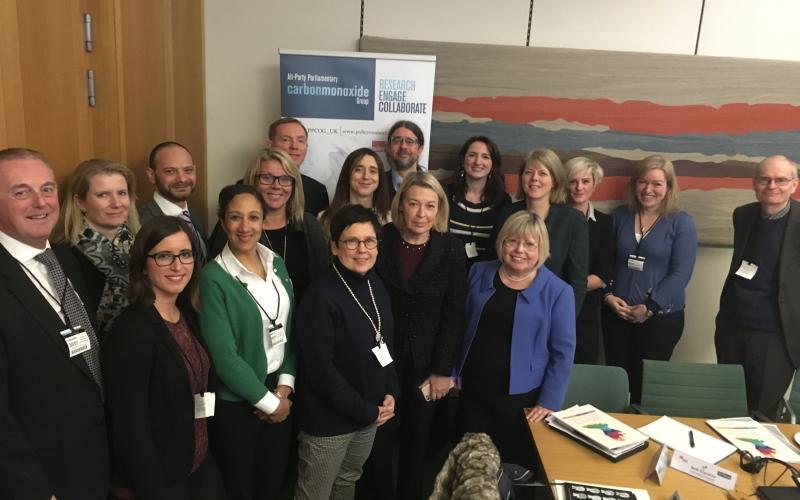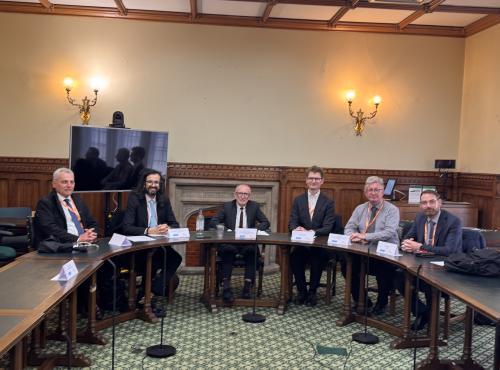APPCOG Highlights CO’s Damage to the Brain
On 30 January 2019, the All-Party Parliamentary Carbon Monoxide Group (APPCOG) hosted a Parliamentary roundtable on carbon monoxide (CO) poisoning’s impact on the brain and mental wellbeing. The APPCOG was joined by a number of Parliamentarians – including Shadow Mental Health and Social Care Minister, Barbara Keeley MP – and chaired by Chris Bryant MP, Chair of the All-Party Parliamentary Group on Acquired Brain Injury. The roundtable was kindly sponsored by the Gas Safety Trust.
On the back of its 2017 report Carbon Monoxide Poisoning: Saving Lives, Advancing Treatment, the APPCOG has been concerned about CO poisoning’s impact on the brain and mental wellbeing. There is a common misconception that if you survive the initial poisoning you’ll recover fairly quickly; however, for many victims this is unfortunately not the case. Even low-level CO exposure can cause permanent damage to the brain and result in long-term cognitive and behavioural changes.
To address this, the APPCOG brought together Parliamentarians, medical experts, Acquired Brain Injury and mental health campaigners, and scientific researchers to discuss CO’s effects on the brain and mental wellbeing. In considering this impact, experts at the roundtable made six crucial findings:
- NHS bodies and/or the Royal Colleges should improve CO poisoning diagnosis outcomes by investing in training for healthcare professionals to recognise the symptoms and long lasting impacts of CO poisoning.
- GPs should be provided with reliable tests for CO presence to help confirm diagnosis, with a uniform mechanism for then recording and reporting the numbers of CO cases diagnosed.
- Research into novel biomarkers for CO must be properly funded to enable better diagnostic methods to be developed.
- NHS England, working with research institutions, should develop a specialist clinic for people with long-term neurological effects caused by CO exposure. This will help plug the gap in care provision and enable future studies that will innovate treatment methods. This clinic must cover cases of mild-to-moderate CO poisoning.
- Government should seek to reduce CO poisoning by introducing preventative measures, including mandating CO alarms in the home, providing CO monitors in first-time pregnancies, and tackling sub-standard housing that increases the risk of CO exposure.
- Government, namely Public Health England and the Foreign and Commonwealth Office, should do more to raise awareness of CO and inform the public on how to lower the risk of poisoning at home and abroad.
A full event briefing is available to download here.
If you have questions regarding the roundtable, or are interested in future events and research, you can email us georgina.bailey [at] policyconnect.org.uk (here) or call us at 020 7202 8586.





